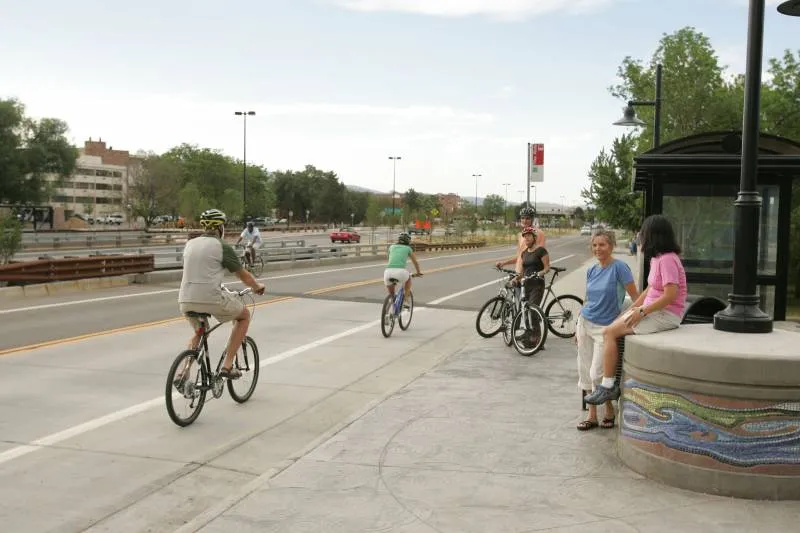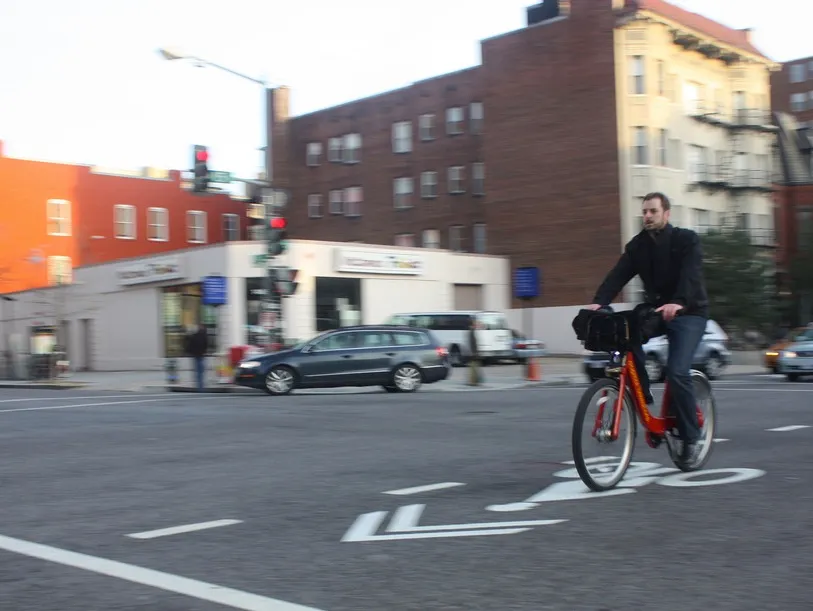A new study published in the Annals of Emergency Medicine shows that only one in five bike share riders had a helmet on her head. With bike share programs on the rise, this low ratio of helmet use may make for an increase in bike related injury and death.
Researchers from Beth Israel Deaconess Medical Center observed more than 3,000 bicyclists in Boston and Washington, DC, and found that bike share riders were more than twice as likely to be pedaling without a helmet. Researchers found that this puts the riders at far greater risk of suffering a serious head injury during an accident.
Additionally, the study found that a higher percentage of cyclists in Boston chose to ride without a helmet — as compared to those in Washington — 52 percent compared to 61 percent. Researchers questioned whether the actual percentage of bike share riders in Beantown might even be lower than the study suggested. “The point of our study was on bike share versus non-bike share,” said Christopher Fischer, MD, assistant director of clinical operations from the Department of Emergency Medicine at Beth Israel Deaconess Medical Center.
Fischer told BikeRadar that the study indicates that people using a bicycle from a bike share program tended to use a helmet far less than those riding their own bicycle.
According to the study people riding bike-share bikes were significantly more likely to be without helmet than people riding their own bikes — 80.8 percent versus 50.4. Researchers also found that slightly more men than women abstained from helmets.
The findings also suggest that helmet usage nationwide has not increased much in the past decade. According to a Yankelovich Partners Survey that was conducted by McDonald's and the U.S. Consumer Product Safety Commission in April of 1999, only about half all bicycle riders in the United States regularly wore a helmet. This was a stark increase from 1991 when the percentage of bikers who reported regularly wearing a helmet was just 18 percent.

Beth Israel Deaconess Medical Center researchers say one-in-five bike share riders use a helmet, versus roughly one-in-two of those who own their bike
The lack of brain buckets being worn by bike share riders could be the result of a number of factors, said Fischer. “A big part of it is that using a bike share is a spur of the moment thing, and those who ride their own bike are more likely to wear a helmet,” added Fischer. “The cost of a helmet is a factor, as is the cultural ‘just going around the block so I don't need a helmet.’”
Additionally, Fischer said that the study found that people who are using bike share are much more recreational riders, and a different target group than those who ride for fitness or sport. Efforts are also being made to encourage riders to wear a helmet when using a bike share program. “There are some efforts in place to provide a low-cost helmet,” said Fischer. “In both Boston and Washington there is a good effort to encourage the wearing of helmets.”
Among the programs that Fischer noted was an MIT effort to provide a helmet vending machine, as well as programs that would provide reusable or disposable helmets at a bike share kiosk. Issues remain, including the hygiene of a bike helmet share, costs for riders and whether disposable helmets could be provided that would be affordable and environmentally sound.
But Fischer agreed that everyone should ride with a brain bucket on their head.
